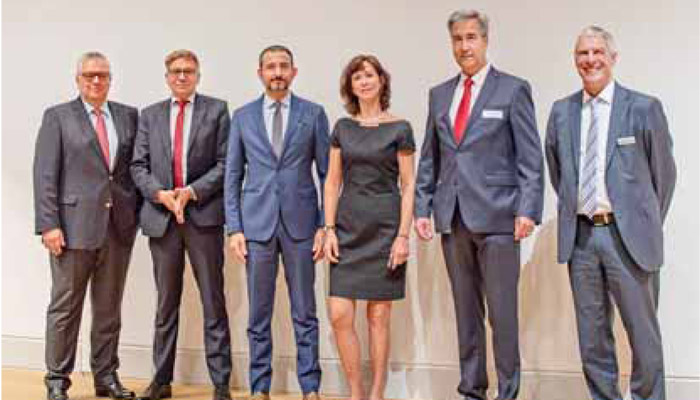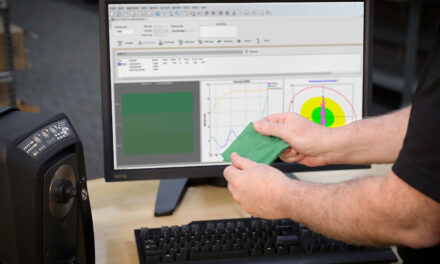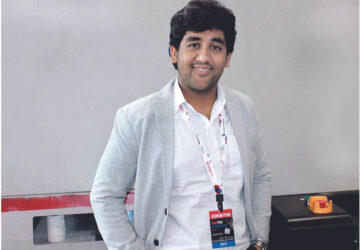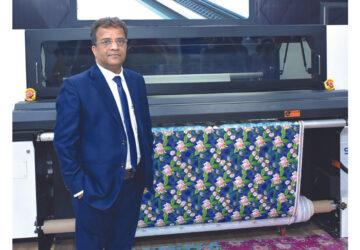19 June 2018, Groz-Beckert invited international guests to Albstadt for the textile symposium for the third time. Under the title “The Fabric Year 2018,” the company provided insights into the current market developments. Around 150 guests from over 20 countries from Asia, America and Europe followed the invitation.
Eric Schöller, Member of the Executive Board Groz-Beckert, who opened the Fabric Year, welcomed the participants. The first presentation of the day was given by Dr. Josef Braml, Deutsche Gesellschaft für Auswärtige Politik e. V., and focused on the global competition between the US and China, as well as the implications for Europe.
Andreas Engelhardt, Groz-Beckert Product Marketing and Innovation, then presented key messages from his established yearbook “The Fiber Year,” which he has been publishing as the owner of the company of the same name for many years. He reported that the global fibre industry achieved a growth of around 4 percent in 2017, after four years of falling growth rates. Although synthetic fibres continued to build on their prominent market position in the sector, natural fibres also experienced a more dynamic growth – a development that has not been seen since 2001.
Once the foundations had been laid with the extracts from the Fiber Year, Andreas Engelhardt and Martin Weiler, Groz-Beckert Market Research, moved on with the Fabric Year with the observations of the development and the current status of the national fibre and fabric production – always divided into knitted and woven fabric, as well as nonwovens. The markets in Vietnam and Indonesia were addressed first. An important common feature of both markets was the growing dependency on imports of fibre material, which is particularly relevant in light of the extremely dynamic expansion in fabric production.
This information was the ideal basis for the subsequent presentation held by Gail Strickler, President of Global Trade Brookfield Associates. She was a key player in the negotiations for the Trans Pacific Partnership (TPP) and the Transatlantic Trade and Investment Partnership (TTIP) for textile-related issues and has been active in the private textile sector for many years. Her presentation addressed the Transpacific Partnership from the Asian perspective, the status of negotiations and the expected implications of the agreement for the global textile trade.
Over the course of the day, Andreas Engelhardt and Martin Weiler gave insights into the developments of further key textile markets. The developments in China, India and Bangladesh, as well as the US, were outlined in a block of presentations. A second presentation from Gail Strickler followed on the topic of the US. In this presentation, she provided exciting insights into the US trade policy and the status of negotiations for the North American Free Trade Agreement (NAFTA).
There then followed a detailed examination of the markets in Germany, Italy and Turkey. Production in Germany has stabilised over the past few years at a comparatively high level and the textile industry in Italy – as a renowned fashion center in Europe – has also experienced a revival recently. An interesting outlook on the Italian fashion market was also provided by Dr. Davide Bonassi from the Italian Hosiery Association.
Engelhardt and Weiler completed the block of presentations with a worldwide summary, complete with an outlook through to 2022. Growth potential has been highlighted for all fabric production technologies, with particularly high growth levels in knitwear and nonwovens. The “The Fabric Year 2018” concluded with an evening buffet dinner, which offered space for discussions and exchanges.



















